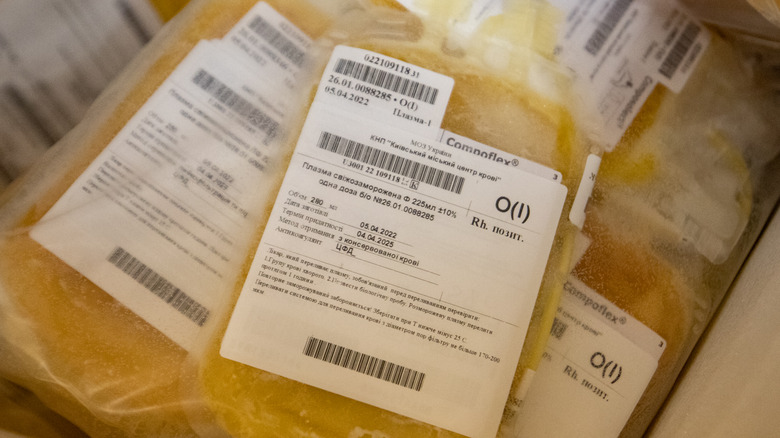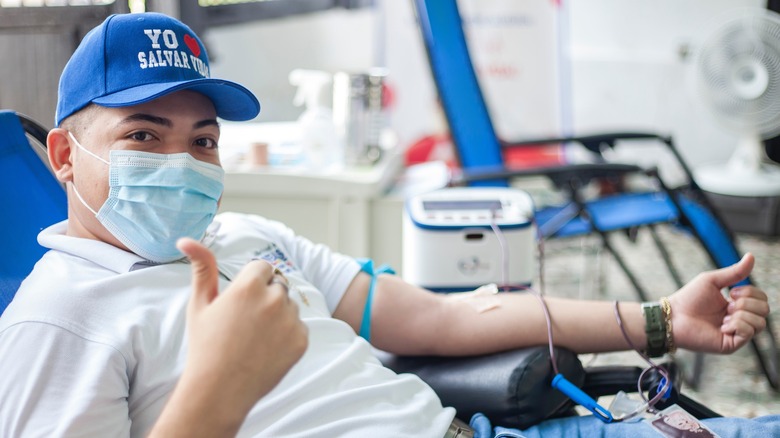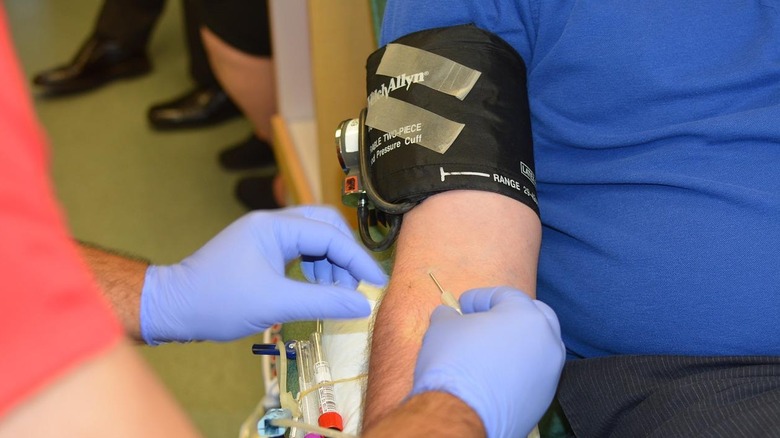Does Donating Plasma Make You Feel Sick?
Most people are aware of the benefits of donating blood, from transfusions during critical surgeries to helping to treat blood diseases like hemophilia. However, donating blood plasma is also a very worthwhile and beneficial undertaking. A 2019 study published in Transfusion showed that blood plasma can help patients who have suffered burns. It can also benefit patients who need plasma-derived therapy for immune deficiencies and blood clotting disorders. According to the American Red Cross, plasma's ability to help with coagulation also makes it useful when treating trauma patients who are suffering from blood loss.
Blood plasma makes up 55% percent of your blood. When separated from the white and red blood cells, it appears pale yellow in color. In the liquid portion of your blood, plasma's primary role is to transport nutrients, hormones, and proteins throughout the body. It's also important in the regulation of blood pressure and purging waste from cells (via the Cleveland Clinic).
It's clear that donating blood plasma can be beneficial, but will donating will it make you sick? In general, donating plasma is a safe and fairly uncomplicated process (via Bloodworks Northwest). However, as with any procedure, there are always risks involved. Even donating blood is not without its side effects. As such, it's important to know what the risks are and what you may be signing up for before you donate plasma.
What happens when you donate plasma
While a person of any blood type can donate plasma, people with type AB are considered to be unique, as their plasma can be given to any other blood type (via the Mayo Clinic).
The process of donating plasma is similar to what happens when you donate blood. After the blood is extracted, the plasma is separated from the red blood cells and other components, which are then returned to the patient's body with a sterile saline solution (via Community Blood Center).
Because of the large quantity of water in plasma, donors may experience dehydration afterward. In addition, they may feel fatigued, as plasma is rich in nutrients. Prior to donating, it's recommended that you hydrate, avoid caffeine, and eat a well-balanced meal. After donation, it's key to keep hydrating and eat a light meal to replenish the body's nutrients and energy (via CSL Plasma).
Perhaps the most serious — albeit rare — side effect of plasma donation is what is known as a citrate reaction. Citrate is a substance that is introduced into the blood that is collected in the machine that separates the plasma to prevent blood clots from forming. When the blood is returned to the body, some of the citrate can enter the bloodstream. In rare cases, patients who have a reaction to the citrate can experience numbness in the lips, fingers, and toes, chills, and shortness of breath. In severe cases, citrate reactions can cause shock or cardiac arrest. (via Healthline).
Be smart and safe when donating plasma
Although the chances of severe or lasting side effects are rare, it's important that you use good judgment when donating plasma. For starters, choose an accredited, certified donation center. You can find a good donation center by searching the Plasma Protein Therapeutics Association website (via the U.S. Department of Health and Human Services). In addition, before you consider donating, you must make sure that you meet the requirements. For example, plasma donors can only be between the ages of 18 and 69 years old and must be able to prove their age. They also have to weigh more than 110 pounds, as a person who is any lighter may not tolerate the effects of plasma donation well (via Grifols Plasma).
If you decide to become a regular plasma donor, a healthy diet is a must, according to Parachute. Would-be donors should consume a clean, high-protein, iron-rich diet with fatty foods kept to a minimum. Furthermore, these foods should be avoided entirely within 24 hours of donating. Before deciding to make any donation, whether it's blood or plasma, be sure to consult with your physician to ensure that you're making the best and safest choice for yourself.



